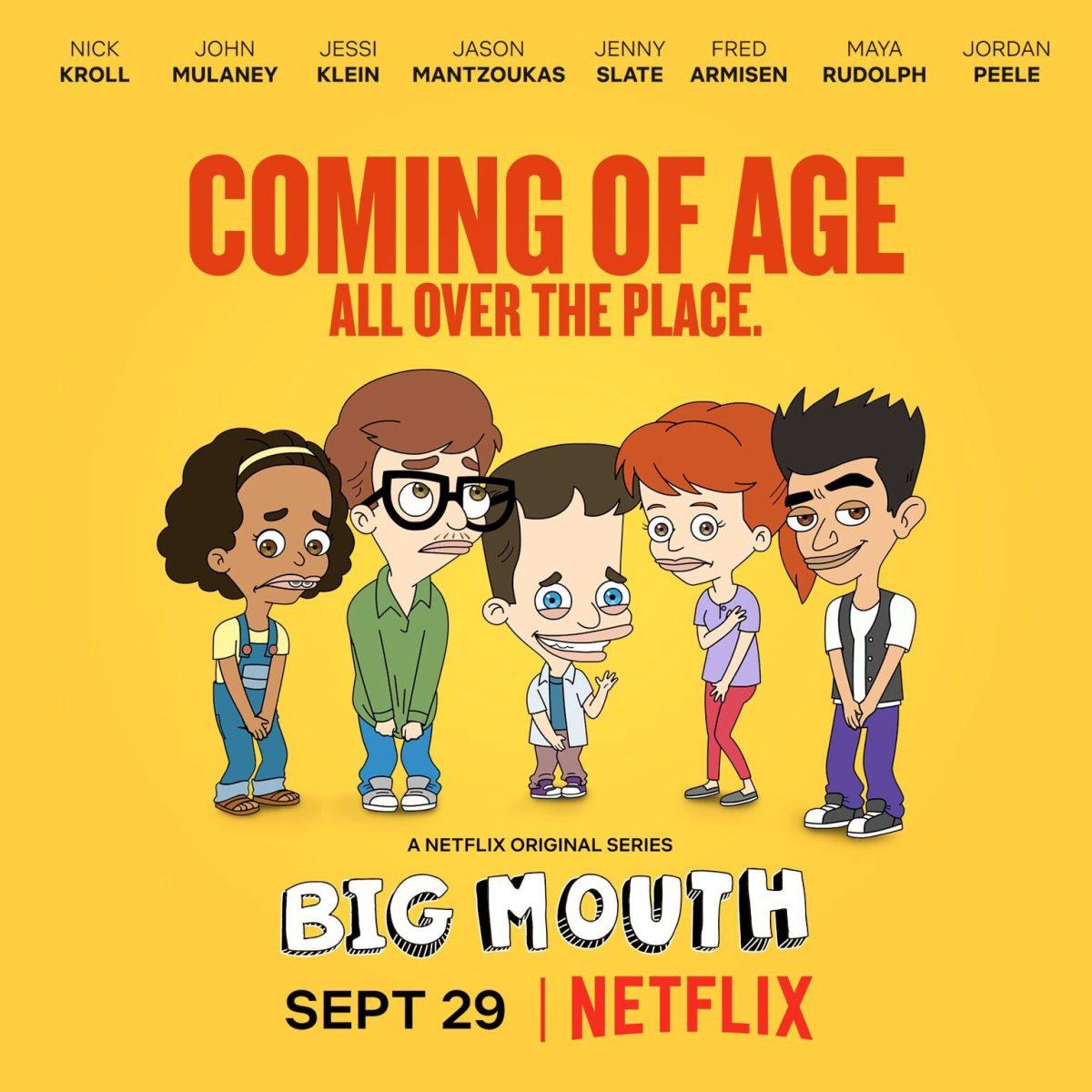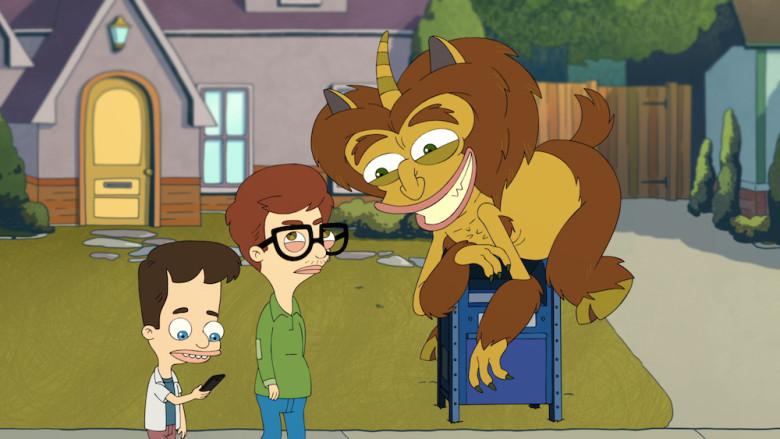We have all been in a situation where we are with a group of people and there’s one person who takes their raunchy humor too far. Everyone becomes uncomfortable, of course, and wants to leave. This situation rings true to the new animated series “Big Mouth” on Netflix. Featuring voice acting by comedians John Mulaney and Nick Kroll, the show follows two middle school boys navigating through the struggles of middle school and puberty.
Released on Sept. 29, the new cartoon brings you back to the awkward times of transitioning into a teenager. The writers certainly remind you that puberty can be disgusting. And “Big Mouth” certainly puts an emphasis on disgusting; perhaps too much.
The caricature-like animation style feels uneasy, where characters have giant lips, scraggly hairs, and bulging eyeballs. The more you look at them and the disproportion, the more discomfort you will feel; and not in a good way.
Seldom minutes into the show, there’s been enough poorly-timed jokes about genitals to make you want to switch back to binging Stranger Things, or perhaps just close your laptop. An awkward “hormone monster,” voiced by Nick Kroll, proves to be a main feature in John Mulaney’s character Andrew’s life.
Every time the hormone monster enters the scene, it’s guaranteed that there will be a gross joke about male genitalia. The show’s revolting peak, an episode titled “Pillow Talk,” follows the romantic relationship between Jason Mantzoukas’ character Jay and his pillow. To put it simply: pregnancy and Amy’s organic lentil soup is involved.
Nick and Andrew do their best to ignore the Hormone Monster.
In all fairness, there are laughable moments in the show. As we’ve all experienced the awkwardness of puberty, you’re bound to relate to a fair amount of the commentary “Big Mouth” puts out. If you were an awkward kid yourself in middle school, you’ll enjoy how the show comments on how tough it is to fit in with your peers. Relationships, dark thoughts, and an overall mockery of reality shine through the mess of foulness in each episode.
Amongst the dozens of dramatic and emotional shows we engorge ourselves in, sometimes it’s nice to switch over to a light-hearted comedy. Though comedy can be very subjective, it can be universally agreed upon that a show should put a smile on our face, consistently, and have us laughing and looking forward to more.
Other cartoons such as “Family Guy,” “South Park,” and “Rick and Morty” have proven that obscenities in shows can do well, and leave their audience wanting more. Unfortunately, “Big Mouth” does not achieve the same effect in comparison due to the constant discomfort it throws your way.
Obscenities entered the comedy scene dating back to Richard Prior in the 1970’s. They became successful as audiences felt like they could fully relate to what was being said, and things that had always been in their minds were finally being brought into reality. Things took off, and eventually we got shows such as “The Simpsons” on cable. Yet it is not difficult to completely butcher an attempt at a reality-commentary cartoon, and that is what we face in “Big Mouth.”
This leads us to question how far these types of shows should take obscenities before it becomes too much. When does bad taste overtake comedy? For now, we know that too many “EW’s” and “UGH’s” can lead us to safely say no to the infamous Netflix question, “Are you still watching?”




































